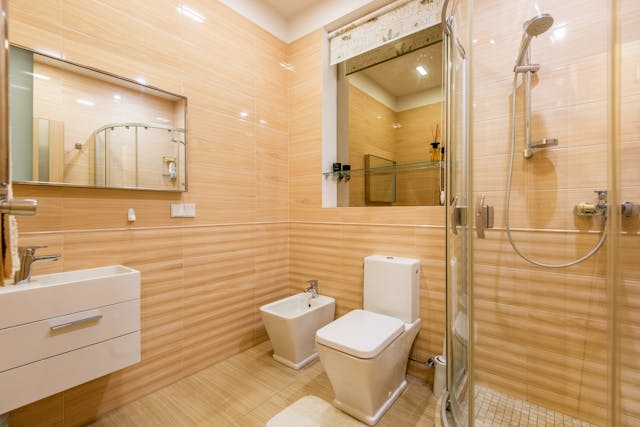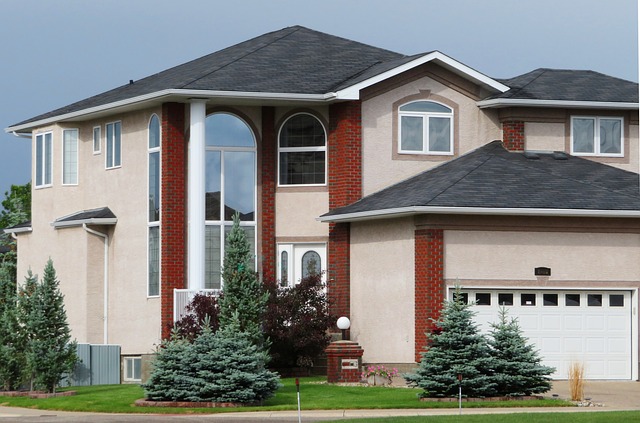Bathroom leaks are one of the most common problems homeowners face, and they can lead to severe damage if left unchecked. Whether it’s a minor drip or a major flood, bathroom leaks can quickly cause mould growth, water damage to floors, and even structural issues in your home. Understanding the most common causes of bathroom leaks is the first step in preventing them.
Common Causes of Bathroom Leaks
1. Leaking Plumbing Pipes
 Leaky pipes are often the main culprit behind bathroom leaks. Over time, the pipes beneath your bathroom’s floor or behind the walls can corrode or develop cracks, leading to water seepage. If the leak is not spotted early, it can cause significant damage to your bathroom floors, walls and even the ceiling below.
Leaky pipes are often the main culprit behind bathroom leaks. Over time, the pipes beneath your bathroom’s floor or behind the walls can corrode or develop cracks, leading to water seepage. If the leak is not spotted early, it can cause significant damage to your bathroom floors, walls and even the ceiling below.
To prevent this, it’s important to regularly inspect your bathroom’s plumbing. If you notice a slow drip or dampness around fixtures, it might be time to call in a professional for bathroom leak repair.
2. Faulty Showerhead or Tap
A constantly dripping showerhead or tap may seem like a small issue, but it can lead to bigger problems over time. Apart from wasting water, the constant drip can cause moisture to build up, leading to dampness and mould. This issue often occurs due to worn-out washers or seals that need replacement.
To fix a leaking showerhead or tap, it’s as simple as replacing the washers or seals. In some cases, you may need a plumber to help with more complex repairs.
3. Worn-Out Tile Grout
The grout between your bathroom tiles acts as a sealant that keeps water from seeping beneath the tiles. Over time, grout can crack or wear away, allowing water to penetrate the walls or floor. This leads to leaks, and if not fixed promptly, it can cause the tiles to loosen or crack.
Regularly checking the condition of your tile grout can help prevent these leaks. If you notice cracks or missing grout, reapply it to ensure a waterproof bathroom.
4. Damaged Shower Tray or Bath Seals
The seals around your bath or shower tray are essential for keeping water contained. Over time, these seals can wear out, crack, or become loose, allowing water to seep through and cause leaks.
To prevent this, regularly inspect the seals around your bath or shower tray. If you spot any cracks or gaps, reseal them using waterproof bathroom sealant to avoid water damage.
5. Clogged Drains
Blocked drains in the bathroom can cause water to pool in your shower or sink, eventually leading to leaks. Over time, soap scum, hair and other debris can build up in your drains, reducing water flow and causing leaks around the drain area.
To avoid clogged drains, regularly clean your bathroom drains by removing debris and using a drain cleaner to keep water flowing smoothly.
Preventing Bathroom Leaks
Taking a few preventive steps can save you from the hassle of dealing with bathroom leaks:
- Regular Inspections: Regularly check for signs of wear and tear on plumbing, tile grout, seals and taps.
- Seal Maintenance: Ensure that seals around your bath, shower and sink are always intact and in good condition.
- Clean Drains: Keep your bathroom drains clean to prevent blockages and leaks.
- Regrout When Needed: Regrouting tiles can prevent water from seeping through cracks.
By staying on top of these maintenance tasks, you can keep your bathroom waterproof and reduce the risk of leaks.
FAQ Section
Q: How do I know if I have a bathroom leak?
A: Some common signs of a bathroom leak include damp spots on the ceiling below, water pooling around fixtures, or mould growth. If you notice any of these signs, it’s important to call a professional for bathroom leak repair.
Q: Can a leaking bathroom cause structural damage?
A: Yes, if left untreated, a bathroom leak can lead to serious water damage to the floors, walls and even the structural integrity of your home. It’s essential to address leaks as soon as possible.
Q: How often should I inspect my bathroom for leaks?
A: It’s a good idea to check your bathroom regularly, especially if you live in an older home. At least twice a year, inspect the plumbing, tile grout and seals for any signs of wear or damage.
Q: What is the best way to keep my bathroom waterproof?
A: Regularly check and maintain the seals around your bath, shower tray and sinks. Ensure the tile grout is intact and regrout whenever necessary. Keeping your drains clean will also prevent water from pooling and causing leaks.
Q: Do I need to hire a professional to fix a bathroom leak?
A: It depends on the severity of the leak. For minor issues like replacing a washer or reapplying sealant, you might be able to fix it yourself. However, for more significant problems like leaking pipes or damaged plumbing, it’s best to hire a professional to ensure the issue is properly resolved.
Preventing bathroom leaks requires regular attention and maintenance. By being proactive, you can avoid costly repairs and keep your bathroom functioning smoothly for years to come.



